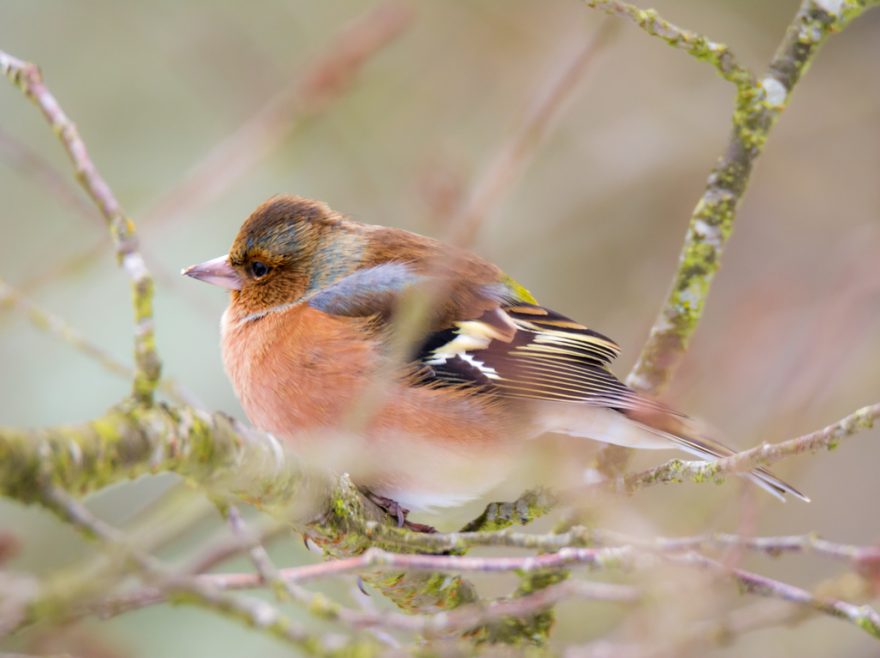Egg binding can quickly prove fatal—especially to smaller birds—so urgent treatment action must be taken. Even if you do everything correctly, there is no guarantee that the afflicted bird will be able to pass the egg and make a full recovery.
Taking measures to prevent egg binding and to keep your birds warm in winter is necessary, even if you master the treatment methods described in this article. Prevention is always better than cure.

Provide Warmth
The most important thing you can do is provide the bird with warmth. Place it in a small cage at a temperature of 25-30 degrees Celsius (about 80-85 degrees Fahrenheit). Make sure cage is kept somewhere quiet, and is protected from draughts and anything else that could cause stress. If you don’t have access to a heat lamp, keep the bird in a room with central heating, a fireplace, or a space heater; but watch the temperature carefully. If possible, increase the humidity of the room with a humidifier, or simply by placing a dish of water beneath the cage.
When handling an egg bound hen, be extremely careful. Rupturing the egg while it’s inside the egg passage can cause mortal injury.
Provide Calcium
If the bird is already egg bound, providing calcium is going to do very little to help. Increasing calcium only helps to prevent re-affliction on subsequent eggs.
You can buy commercial calcium supplements that can be mixed into the drinking water or dripped directly into the beak. There are lots of natural calcium sources available too, such as cuttlefish bone and eggshells. You can give chicken eggshells to birds by thoroughly washing them, and then microwaving them on high for five minutes to kill any bacteria hiding in their porous surface. Make sure the shell has cooled before offering it to your birds.
It’s commonly believed that a rapid increase in calcium will strengthen the afflicted bird’s vent muscle enough to push the egg through. Although there’s no real evidence supporting this assertion, egg binding is a desperate situation and one should take advantage of even the smallest potential benefit.
Lubricate
In a last-ditch effort to help the bird pass the egg, you can try to lubricate her vent with cooking oil or a non-toxic personal lubricant. With larger birds, you may have success gentle massaging the vent area, but be extraordinarily careful, are rupturing the egg can be fatal.
Post-Treatment
Once the egg has been passed, a course of avian antibiotics can help to prevent infection.
Egg binding is generally a symptom of inadequate nutrition, so the first step you should take to prevent re-affliction is to improve your bird’s diet. Make sure you’re supplying calcium, fresh leafy greens, and green or sprouted seed.
I have always found success by gently administering mineral oil on the vent & holding the hen in my hand with the vent over a container of boiling water such as a tea pot. The warm moisture helps a lot & by holding her in your hand you will prevent overdoing it.
The frustrating bit is when it’s a single hen in a group of the same type in the same avairy with the same diet. You then have to decide if the silly girl is not eating a varied diet even though it is being offered or if it is genetic. But when you have her sisters and they are fine you know it is less likely to be genetic.
I have a couple of female tiels they both eat seedmix and kale spinache and Broccoli but one lays so many eggs and I’m trying to prevent this. She is egg binding I believe just now and there is cuttlefish and other calcium blocks iodine blocks in the cage aswell. They eat well I am worried but the avian vet costs way more than I ever imagined im looking for anything I can personally do and have seen some ideas on other comments I will give a go. Not nice to witness ????